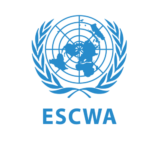Design, Development and Delivery of a Training Programme on Regulatory Reform in Egypt
Background
Since the early 2010s, Egypt has embarked on significant political and economic transformations aimed at revitalizing its economy and increasing transparency within governance structures. After political upheavals, a comprehensive IMF-backed economic reform program was initiated, focusing on stimulating growth, creating jobs, and managing fiscal deficits. Key reforms have been implemented to enhance the regulatory framework to attract foreign investment and improve the business environment, making regulatory reform a top priority. The government lifted capital controls introduced in 2015 and broadened structural reforms to improve its World Bank ease of doing business ranking.
In response to these needs, Triangle was commissioned by ESCWA to develop and deliver a strategic training initiative aimed at building the capacity of senior-level technical staff across various Egyptian government entities. This programme is designed to facilitate the successful implementation and sustainability of regulatory reforms, leveraging Triangle’s extensive experience in governance and economic development within the region.
Triangle’s Assignment
- Assessment of Training Needs: The project began by conducting a thorough assessment of the training needs of senior-level technical staff from various Egyptian ministries and governmental departments. This involved identifying key areas where regulatory reform knowledge and skills were lacking and tailoring the training content to address these gaps.
- Design and Development of Training Materials: Based on the initial needs assessment, Triangle developed comprehensive training materials. These included case studies, presentations, summaries, and diagrams, all designed to facilitate interactive and experiential learning. The materials were created to ensure relevance to the Egyptian context and to incorporate best practices in regulatory reform from around the world.
- Implementation of Training Programme: Triangle delivered a five-day intensive training programme focused on best practices in regulatory reform. The training covered international and regional regulation best practices, mapping of the Egyptian regulatory framework, and brainstorming for future reforms. Sessions were led by international experts, including keynote speakers from the OECD, who presented success stories and best practices in regulatory reform.
- Drivers of Regulatory Reform: The analysis identified several key drivers of Egypt’s regulatory reform efforts, including the need to attract foreign investment, improve business conditions, and align with international best practices. These factors were critical in shaping the content and focus of the training programme.
- Economic and Social Impacts: The training aimed to enhance participants’ understanding of how effective regulatory reform can lead to improved economic conditions, increased investment, and better public service delivery. This understanding is crucial for driving long-term sustainable development.
- Changing Dynamics: The programme highlighted the changing dynamics within Egypt’s regulatory environment, noting the shift towards more transparent and accountable governance practices. Participants were equipped with the knowledge and tools needed to navigate and influence these changes effectively.
- Methodology: Triangle employed a mixed-methods approach combining quantitative data analysis, qualitative insights from key informant interviews, and participatory stakeholder workshops. This adaptive methodology was guided by the OECD’s recommendations on regulatory policy and governance, ensuring that the training sessions were flexible, context-specific, and aligned with the objectives of the exercise.
- Urgent Need for Capacity Building: The project emphasized the urgent need for capacity building within Egyptian government entities to support ongoing and future regulatory reforms. The training aimed to create a cadre of skilled professionals capable of driving and sustaining these reforms.
- Research Objectives: The project aimed to provide participants with a deep understanding of regulatory reform processes, tools, and methodologies. By enhancing their knowledge and skills, the programme sought to enable participants to contribute effectively to Egypt’s regulatory reform agenda.
- Capacity Requirements: The project required a team with a blend of expertise in regulatory reform, economic development, and training. This included professionals experienced in interactive and experiential learning methods, capable of delivering high-quality training tailored to the needs of Egyptian government officials.
- Role of ESCWA and Responsibilities: ESCWA provided oversight and guidance throughout the project, ensuring alignment with broader goals of economic governance and national development planning. Responsibilities included reviewing and validating training materials, facilitating logistical support, and coordinating with Egyptian governmental partners to ensure successful programme delivery.
Project
Design, Development and Delivery of a Training Programme on Regulatory Reform in Egypt

Duration:
June 2018 – August 2018
Egypt

Service Type
Training, Policy Advisory